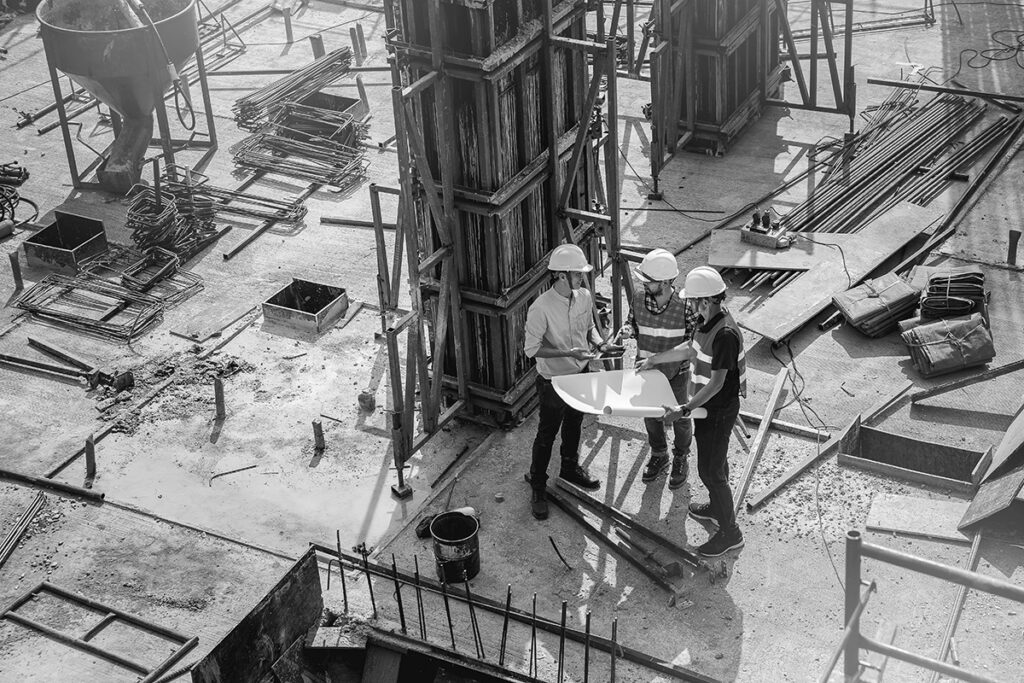Getting students to choose civil engineering courses can be quite challenging as it is generally perceived to be closely linked to the construction industry and therefore seen to be at the mercy of the country’s economy. When the economy is strong the industry booms and when it is weak construction wanes. This is evident when we consider the decline in civil engineering and building undergraduate awards in the 10 years from 2008 from circa 2,200 to 780 (the 10 years after the economic downturn). Also, many students are not aware of the wide range of career opportunities available in the field, from designing and building our civilian infrastructure, to making the best use of our resources in an environmentally aware and sustainable way, to protecting our communities from the effects of climate change.
In 2021, the Expert Group on Future Skills Needs, published Building Future Skills; the demand for skills in Ireland’s built environment sector to 20301. The report identified that skill shortages at national levels, are deemed to be the most significant obstacle in the successful delivery of Project Ireland 2040, and addressing the commitments made by Ireland in the Climate Action Plan 2019.
The industry believes that a work-based or apprenticeship mode of delivery is well suited to the profession of Civil Engineering. Students/Apprentices will get hands on experience of the modules they are studying while in their workplace, giving them a deeper understanding of what they are doing and why they are doing it. The employers engaged with agree that the work-based nature of these programmes will ensure that transferable skills are developed before graduation.
It is also expected that these programmes will be more attractive to females to address the gender imbalance being experienced. The Civil Engineering and construction industry has always been predominately male and there has been very little change in this in recent years. Unfortunately, the numbers of females choosing a career in the construction industry is a disappointing 8%. If half of our working population are women, then we should be striving to ensure this gender gap is bridged. In order to do this, we have to make a career in civil engineering and construction related disciplines more appealing to women. These apprenticeship programmes are being designed with this in mind.
In early 2020, a proposal was submitted by the department of Civil Engineering and Construction to the HCI Pillar 3 Project – Higher Education 4.0 to develop a masters programme through work-based learning. It was proposed that the mode of delivery of the taught elements of the programme would be through online lectures (delivered one day per week) and on-site workshops (typically once per month during the academic year). The programme would be developed through collaboration with key industry employers and the professional and regulatory body for engineering in Ireland, Engineers Ireland. The long-term goal was to offer students an embedded qualification route where the student can gain their Initial Professional Development in conjunction with achieving their educational base. This would allow the student to submit their application for the professional title, Chartered Engineer, with Engineers Ireland in a shorter timeframe after graduation than the traditional route. Initial discussions with industry began in Spring 2020 with very positive results, as industry viewed this as a sustainable pathway to attract new talent and upskill existing staff.
Coincidentally, shortly after the commencement of the project, changes to the Industrial Training Act, 1967 were being considered based on proposals to remove certain wording within the Act (these proposals were backed by Engineers Ireland). This wording was considered to be a barrier to the engineering profession. This would open the door for more engineering programmes to be delivered by an apprenticeship mode, which had formerly been excluded.
Following further discussions with our industry partners, it was decided that the apprenticeship route may be the best pathway to pursue as the new apprenticeships were garnering a lot of support from the government. In 2021 a industry consortium was formed with representatives from the following organisations:
- Atlantic Technological University
- Civil Engineering Contractors Association – a subsidiary of the Construction Industry Federation
- Engineers Ireland
- Local Government Management Agency
- The Association of Consulting Engineers of Ireland
- Transport Infrastructure Ireland
- Irish Water
The consortium was keen to develop attractive pathways to various levels of qualifications. Initial proposals for four standalone apprenticeships were submitted to the National Apprenticeship Office (NAO) for development, ranging from Higher Certificate (Level 6) to Masters (Level 9).
In August 2022 the consortium received confirmation that the proposals for the development of a Higher Certificate (Level 6) and Bachelor of Engineering (Level 7) had been approved for development by the NAO. Following this, in September, confirmation that the proposals for the Bachelor of Engineering Hons (Level 8) and Master of Engineering (Level 9) had been approved was received from the NAO. Funding for the development of these four programmes would be provided by SOLAS.
The consortium plan to begin recruiting onto the Levels 6 and 7 in September 2023 with the Levels 8 and 9 to follow a year later. The indicative programme will be that apprentices attend online lectures one day per week and an additional day per month on campus (for labs and workshops). The other four days per week will see the apprentices in the workplace learning “on the job”.
The employers engaged with agree that the work-based nature of these programmes will ensure that transferable skills are developed before graduation.
This is an exciting new initiative, creating a career path to the Civil Engineering profession in Ireland. Being led out initially by Atlantic Technological University, with the first planned level 6 and 7 cohort intake in September 2023, it is envisaged that this national programme will ultimately grow to include the Levels 8 and 9 and be delivered by various providers across the country. The civil engineering apprenticeship programme is planned to be transformational, and, over time, bridge the shortfall in supply of engineers in Ireland, providing those skills critical to the delivery of Project Ireland 2040.


